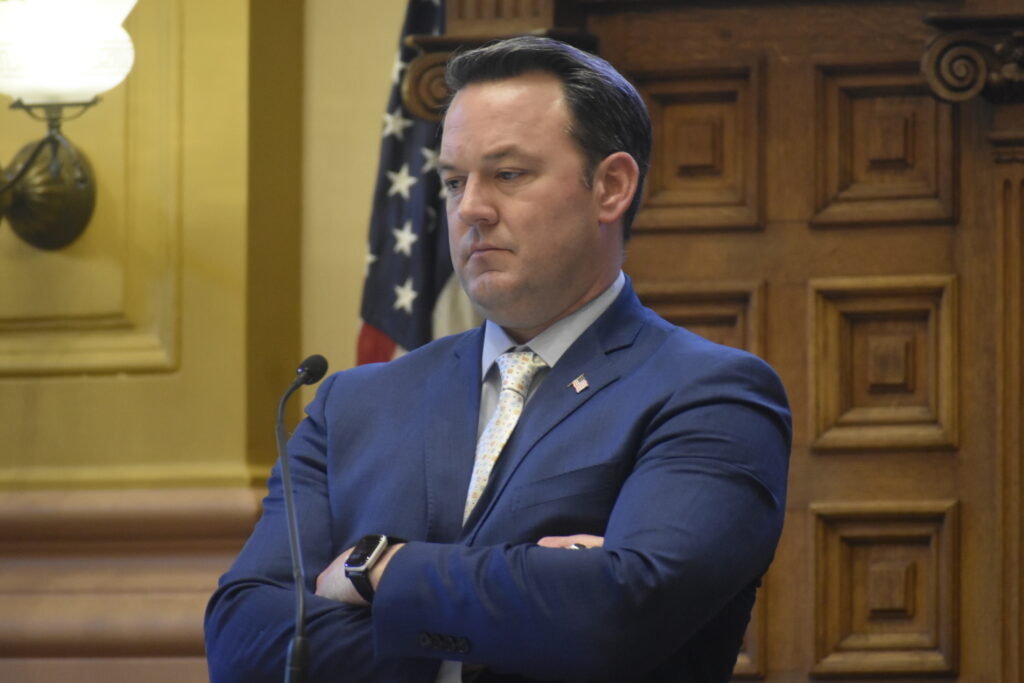Look at the world around us. On the scale of injustices that government can and should attempt to correct, transgender women competing in female sports should barely rank a footnote.
In the entire state of Georgia, the number of transgender students competing in high school sports is zero, largely because the phenomenon is rare in the first place and also because it is already against state regulations.
Yet our state attorney general, who is running for governor, is treating it as a major civil rights scandal that must be corrected as soon as possible, even though it is already “righted” under Georgia law. Our lieutenant governor, who is also likely to run for governor, says that protecting women against transgender competition “will be a priority during the 2025 session,” which opens Jan. 13.
Why so much attention to an issue that affects almost nobody? Because transgender Americans are an unpopular, powerless and almost friendless subgroup, which makes them the perfect target for politicians willing to leverage that unpopularity into votes. With all the major issues confronting our country, there’s a reason that Donald Trump and the Republican Party spent so many advertising dollars on the politics of transgender Americans.
It works.
Furthermore, by focusing the debate on sports competition, those seeking to pick on transgender Americans have found a way to recast them as the perpetrators of injustice, rather than its victims. Somehow, the daily indignities faced by transgender Americans, including something as basic as finding a safe restroom, vanish into the ether when someone mentions that someone somewhere might someday be asked to compete against a transgender person in sports.
It comes down to a basic question: What makes you more uncomfortable?
Transgender people, or the way transgender people are treated in this society?
It is also, however, a question of priorities and strategy.
If there are very few if any transgender athletes being denied the right to compete in Georgia, if other indignities faced by transgender Americans are considerably more important in their lives, then perhaps that is not the fight that ought to be fought at the moment. House Speaker Jon Burns has already pointed the way, saying his chamber will work this session to pass a bill codifying the ban on transgender women competing in sports but will entertain no other legislation seeking to target the transgender community.
Those in his party seeking higher office will get the campaign credential they seek, but that’s where the line will be drawn. It’s a good compromise.
In the early ‘90s, Bill Clinton lacked the votes and public support needed to let gay Americans serve openly in the military, but his compromise policy of “Don’t Ask, Don’t Tell” at least gave gay service personnel some protection. It was progress. The principle of equal treatment had not been surrendered, even if the means of accomplishing it had changed.
As a result, by 2008, Barack Obama could run and get elected on an explicit policy of ending the ban on gay Americans serving openly in the military, and by 2011 he had done so.
Obama himself could and did triangulate in a similar fashion, zigging and zagging to get to a goal that he could not have achieved directly. In his 2008 campaign, Obama said he opposed gay marriage, arguing that “marriage is the union between a man and a woman.” By the 2012 campaign, observing that both he and the country had evolved on the issue, Obama openly supported gay marriage, which soon became legal in all 50 states.
(Ensuring it remains so may prove a challenge.)
Again, the principle of equal treatment was not surrendered, even if the course taken to accomplish it had changed.
You don’t want to leave anyone behind, but you also can’t achieve everything all at once.
YOU MAKE OUR WORK POSSIBLE AT GEORGIA RECORDER.
Excerpts or more from this article, originally published on Georgia Recorder, appear in this post. Republished here, with permission, under a Creative Commons License. Learn more about third-party content on ZanyProgressive.com.




